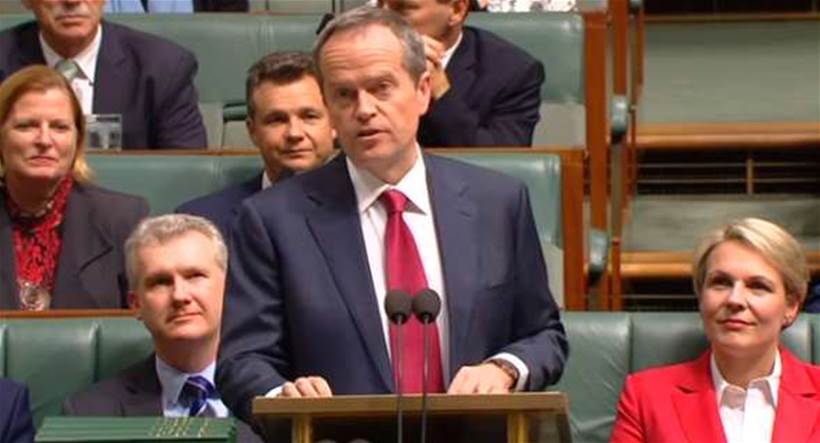The digital economy might have won out in short-term spending measures in Budget 2015.
But when it comes to dealing with the longer-term challenges posed by the "digital age" - including meeting future skills demands - opposition leader Bill Shorten has marked the Government's Budget 2015 as a "fail".
"The truth is the 2015 Budget is silent on the big picture, the next decade, the long run," Shorten said in his budget reply speech.
"I want to create jobs and grow the economy."
In an address that had more in common with an election campaign launch than a budget reply, Shorten unveiled a series of measures that bring science, technology, engineering and mathematics (STEM) to the forefront of policy thinking - and which Labor would pursue should it return to power.
"New jobs of the future require new skills," Shorten said.
"Designing skills, coding skills – building, refining, adapting and servicing the machines and supply chains of a new age."
Shorten said that "three out of every four" of the fastest growing occupations in Australia required STEM skills, and yet the number of students attaining those skills remained low.
But Shorten indicated he wanted students' exposure to STEM fields to begin at a much earlier age - echoing the calls of ACS president Brenda Aynsley and mathematician and broadcaster Adam Spencer.
"Digital technologies, computer science and coding – the language of computers and technology - should be taught in every primary and ever secondary school in Australia," Shorten said.
"Coding is the literacy of the 21st Century. And under Labor, every young Australian will have the chance to read, write and work with the global language of the digital age."
Shorten committed to make coding in schools a "national priority". He also said he would write off the HECS debts of 100,000 STEM students; offer training to 25,000 STEM graduates to become teachers, and offer existing teachers the chance to skill up on STEM subjects.
"We will [also] encourage more women to study, teach and work in these fields," he said.
Growing seed capital
Another centrepiece of Shorten's strategy is a $500 million smart investment fund to back "great Australian ideas".
"Our smart investment fund will partner with venture capitalists and fund managers to invest in early stage and high potential companies," he said. "Our model has a definite, proven record of success both here and abroad."
He also committed to work with the banking and finance industry to establish a "partial guarantee scheme, StartUp Finance, to help more Australians convert their great ideas into good businesses."
"We will enable entrepreneurs to access the capital they need to start and grow their enterprises," he said.
Re-funding research
Labor was also keen to restore funding to research and development, at a time when the likes of CSIRO, universities and other bodies are facing cuts and a lack of avenues to fund research projects.
"We should aspire, together: universities, industry, the people and the Parliament to devote 3 percent of our GDP to research and development by the end of the next decade," he said.
Shorten believed that research could benefit the economy at large.
"I want more Australians making breakthroughs and adapting technology here in Australia, and more Australian businesses sharing in the benefits of that technology: in our warehouses, in our factories, in our farms and design firms," he said.
"Innovation offers opportunities everywhere: smarter farming and safer food, more liveable cities and better transport."
ACS calls for bi-partisan approach
ACS CEO Andrew Johnson welcomed the announcement, but warned that the timetable needed to be brought forward.
“It’s great to see the announcements in last night’s budget reply speech, but we simply can’t wait until 2017 to implement this. The ACS urges bipartisanship from our political parties on this critical issue. Together with the strong support for coding and STEM skills we are now seeing from the business community, the ACS believes we now have a powerful platform and alignment of views to take these initiatives forward immediately.” Mr Johnson said.
“In the UK, the Government has worked collaboratively with the British Computer Society and the ICT industry to help train teachers who can then go on to teach coding. It is already happening over there and we and the business community stand ready to work with the political parties to get this underway in Australia, so we can start building a skilled digital workforce for the future”.
The ACS particularly welcomes initiatives to increase tertiary STEM study levels.
“We have long been flagging the issue around declining enrolments in the STEM disciplines, and we certainly welcome changes to encourage greater participation.”
“Ultimately, we see this as a wonderful opportunity us ensure Australia has the skills, the jobs and the workforce needed to prosper in a digital future.”









